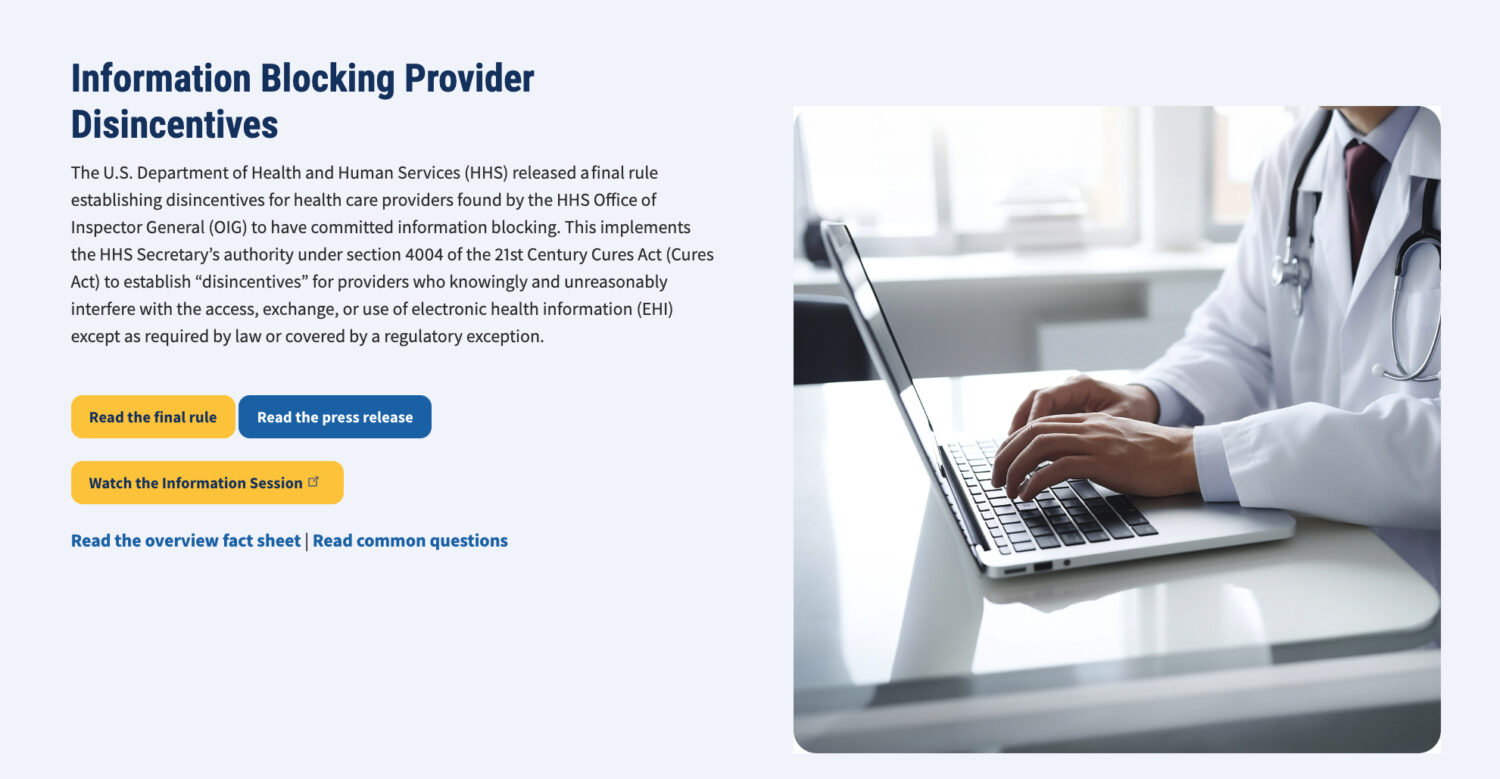
What You Should Know:
– The U.S. Department of Health and Human Services (HHS) has announced a new initiative to increase resources dedicated to curbing the practice of “information blocking“.
– Secretary Robert F. Kennedy, Jr. has directed HHS to take active enforcement against healthcare entities that restrict patients’ access, exchange, and use of electronic health information.
Empowering Patients and Innovators
The announcement states Information blocking was not allegedly a priority under the Biden Administration, but that has changed under President Trump and Secretary Kennedy. The 21st Century Cures Act of 2016 authorized the Office of the Assistant Secretary for Technology Policy/Office of the National Coordinator for Health IT (ASTP/ONC) and the HHS Office of Inspector General (OIG) to take enforcement actions to hold violators accountable.
Deputy Secretary of Health and Human Services Jim O’Neill stated that unblocking the flow of health information is “critical to unleashing health IT innovation and transforming our healthcare ecosystem”. Many patients rely on access to their health information to monitor chronic conditions, adhere to treatment plans, and find errors in their records.
According to Acting Inspector General Juliet T. Hodgkins, providers and certain health IT entities have a “legal duty” to ensure that information flows where and when it’s needed. She added that the HHS-OIG will use all available authorities to investigate and hold violators accountable. Dr. Tom Keane, Assistant Secretary for Technology Policy and National Coordinator for Health Information Technology, noted that ASTP/ONC has already begun reviewing reports of information blocking and is providing technical assistance to the OIG for investigations.
Consequences of Non-Compliance
The announcement serves as a warning to those still engaging in information blocking. The consequences for violators can be substantial:
- For healthcare providers: They could be subject to disincentives under certain CMS programs.
- For certified health IT developers, health information networks, or health information exchanges: They could face a civil monetary penalty of up to $1M per violation. Their certifications could also be terminated, and they could be banned from the Certification Program.
The announcement is also a call to action for patients, providers, payers, and health IT companies to report alleged information blocking through ASTP/ONC’s Report Information Blocking Portal.
